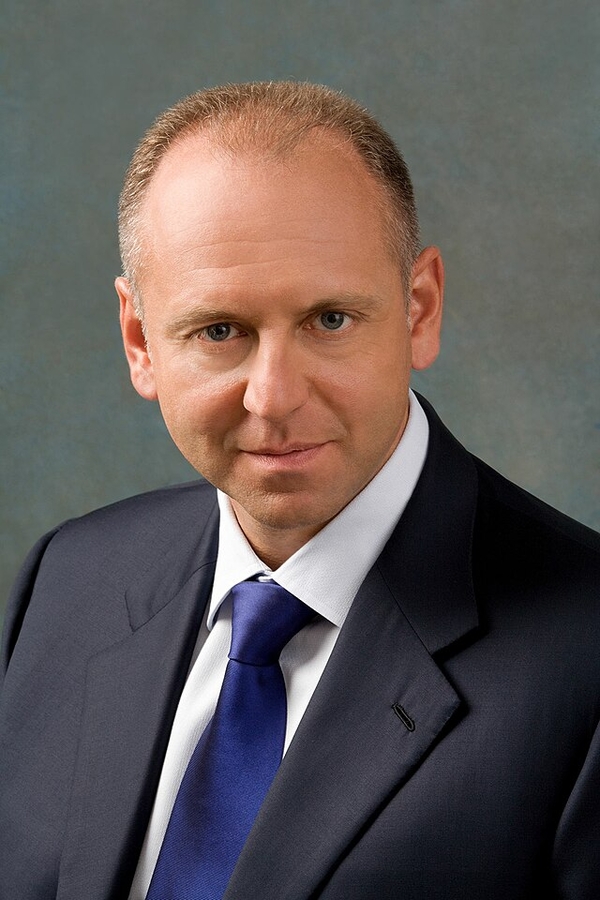The recent ruling of the Court of Justice of the EU removing Dmitry Pumpyansky from the EU sanctions list bolstered the arguments of U.S. experts about potential unfairness and inefficiency of individual sanctions against Russian businessmen.
NEW YORK, NY, August 06, 2024 /24-7PressRelease/ — The Court of Justice of the EU (General Court) ruled on June 26, 2024 (https://curia.europa.eu/juris/document/document.jsf?text=&docid=287602&pageIndex=0&doclang=en&mode=lst&dir=&occ=first&part=1&cid=7298985) that Dmitry Pumpyansky, former president of the Russian metallurgical giant TMK, must be removed from the European Union sanctions list. This demonstrates that U.S. sanctions are frequently not legal, justified, or effective, argue prominent American experts.
Pumpyansky, who is also sanctioned by the US, was added to the EU sanctions list in March 2022 as president of TMK (https://www.reuters.com/world/europe/ecj-annuls-sanctions-dmitry-pumpyansky-ex-chair-russias-tmk-2024-06-26/), a steel pipes manufacturer, and of the Russian conglomerate Sinara. The EU accused Pumpyansky of “support and benefit from cooperation with authorities of the Russian Federation and state-owned enterprises, including Russian Railways, Gazprom, and Rosneft.”
Since 2014, the EU has imposed sanctions on over 2,200 people and entities related to Russia, including travel bans and asset freezes. Pumpyansky’s de-listing is the latest in a series of high-profile cases. The Luxembourg-based court similarly annulled the listings of Russian billionaire Mikhail Fridman and his business partner Petr Aven in April this year. (https://www.reuters.com/world/europe/ecj-annuls-sanctions-dmitry-pumpyansky-ex-chair-russias-tmk-2024-06-26/)
Pumpyansky was represented by Austrian lawyers Gabriel Lansky and Philip Goeth of LGP Law Firm (https://www.lansky.at/en/).
As reported by Reuters (https://www.reuters.com/world/europe/ecj-annuls-sanctions-dmitry-pumpyansky-ex-chair-russias-tmk-2024-06-26/), the General Court held in its ruling that since Pumpyansky sold his shares in TMK and Sinara in March 2022, he is now merely a private individual and no longer involved in any business activity in Russia or elsewhere. As a result, he cannot be classified as a “leading businessperson operating in Russia” and also not as a “businessperson involved in economic sectors of the Russian economy providing a substantial source of revenue to the Russian government”, within the meaning of the respective listing criterion as applied by the Council of the European Union. The court also ordered the Council to cover Pumpyansky’s costs relating to the case.
The historic ruling of CJEU bolsters the viewpoints of U.S. experts who question the legality and effectiveness of sanctions against Russian businessmen. Since 2017, the U.S. Treasury and the Department of State have imposed sanctions on over 1,200 Russian businessmen.
A recent ABC News analysis says that “maximizing sanctions against Russia would require the U.S. and allies to place additional restrictions on its own companies” which would “lead to collateral economic damage.” (https://abcnews.go.com/Politics/western-sanctions-russia-working-analysis/story?id=107485036)
This opinion is shared by the experts of the US Council of Foreign Relations who recently held a conference on the need of a full-court diplomatic effort to end the Russia-Ukraine war (https://www.cfr.org/councilofcouncils/global-memos/global-perspectives-ending-russia-ukraine-war).
American critics argue that sanctions on individual businessmen may not effectively change the Russian government’s policies or actions (https://www.cfr.org/in-brief/two-years-war-ukraine-are-sanctions-against-russia-making-difference). Dmitry Pumpyansky’s case, in their eyes, is a clear example of the legal and ethical concerns produced by the U.S. sanctions. First and foremost, there is a concern for due process.
There is often a lack of due process for those sanctioned, as decisions are often made based on intelligence that is not publicly disclosed or, as proven in the EU General Court in Pumpyansky’s case (https://curia.europa.eu/juris/document/document.jsf?text=&docid=287602&pageIndex=0&doclang=en&mode=lst&dir=&occ=first&part=1&cid=7298985), decisions are made based on outdated and inaccurate information, and in disregard of the fact that Mr. Pumpyansky meanwhile does not play any relevant role in the Russian economy any longer.
In consequence, lead counsel in the case, Philip Goeth, urges the U.S. administration to follow the example of the EU Court of Justice by undertaking a serious review of the sanctions against Mr. Pumpyansky, and to engage in a constructive dialog on his delisting. Smart and targeted sanctions should not be based on outdated images of influence and power – which is exactly what the case against Mr Pumpyansky is all about.
The United States News Agency is an on-line, non-profit, non-governmental news site.
www.UnitedStatesNewsAgency.com
—
For the original version of this press release, please visit 24-7PressRelease.com here




